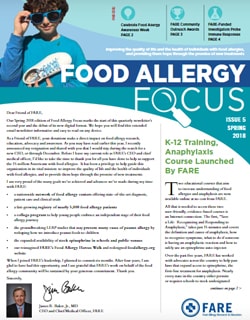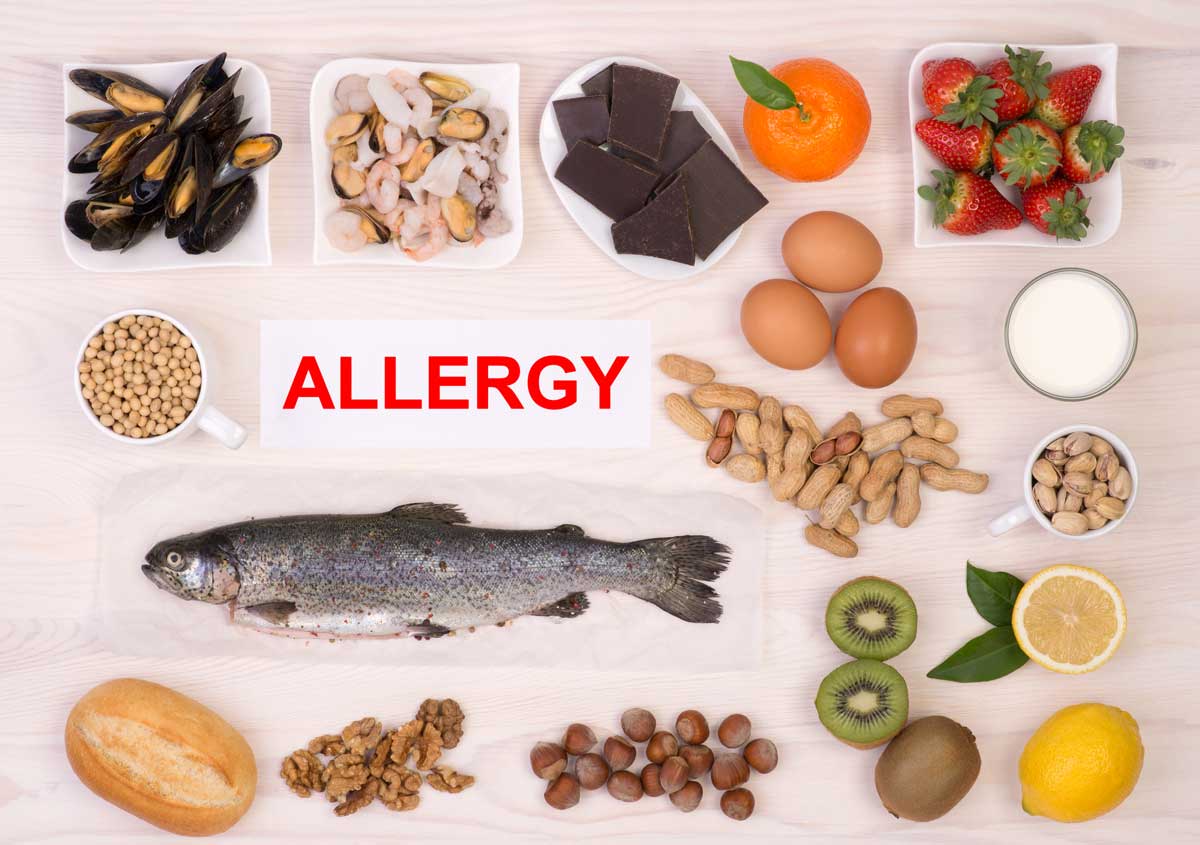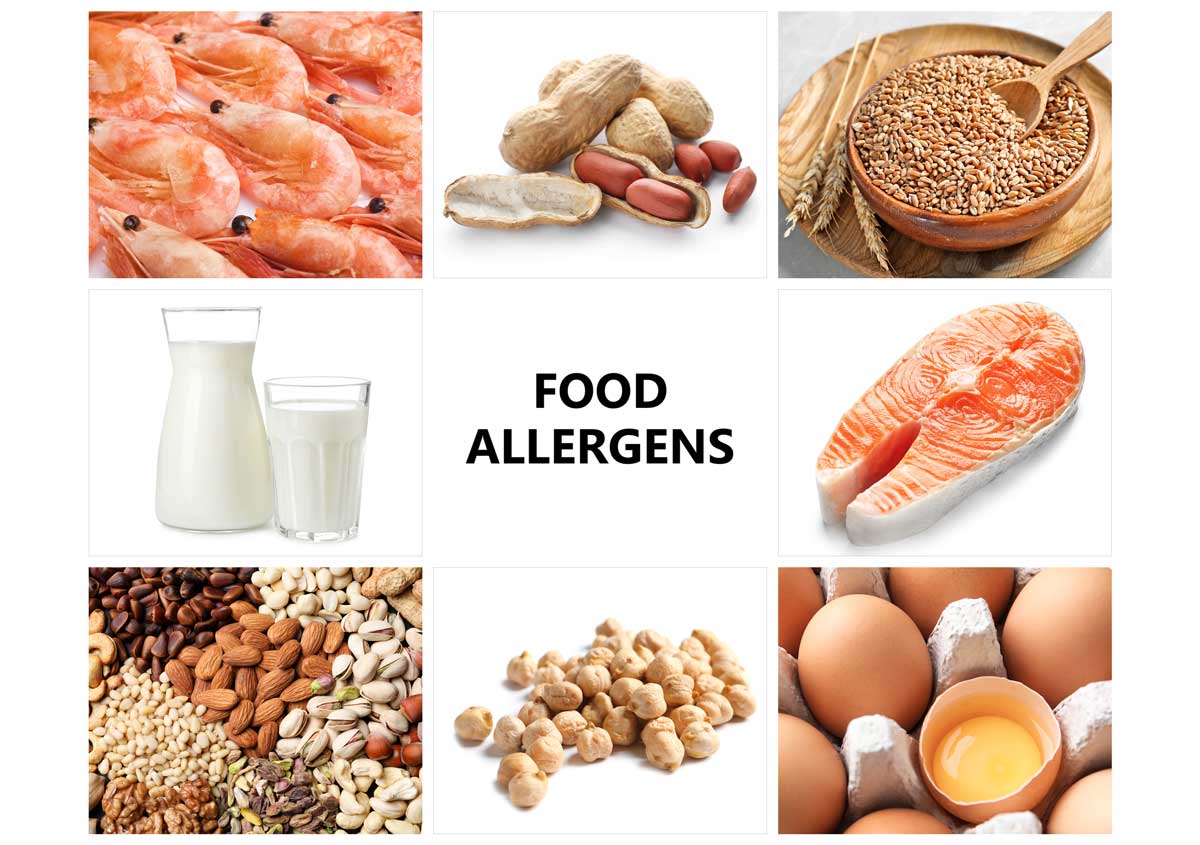
We eat to fuel our bodies, improve our health, and sometimes just for pleasure. Ideally, consumption of healthy foods should be positive. Unfortunately, sometimes one or more foods can become the enemy of your body. It can happen with foods that are generally considered healthy, and with foods that you have consumed regularly all of your life.
Understanding food allergies
A food allergy occurs when the body begins producing an IgE (allergy antibody) to a specific protein, which is normally tolerated by the human body. Milk, soy, nuts, egg, seafood, and wheat are among the most common allergens. However, it is possible to develop an allergy to nearly any kind of food. Symptoms may begin from a few minutes to a couple of hours after ingesting the trigger food.
The symptoms of food-related allergies may include:
- Swelling, usually of the lips, eyes, tongue, or throat
- Hives (swollen, red, itchy welts)
- Shortness of breath, wheezing, or other respiratory symptoms
- Diarrhea or abdominal pain
- Worsening of eczema (atopic dermatitis) in infants and children
Severe reactions
Food allergies can cause a potentially fatal reaction known as food-induced anaphylaxis. Anyone potentially experiencing this reaction should call 911 immediately. The symptoms may be treated with antihistamines, injectable epinephrine, or other emergency medicines. The symptoms of food-induced anaphylaxis include:
- Severe difficulty breathing
- The feeling of tightness in one’s chest
- Tongue, throat, or both swelling
- Flushing or a sudden sensation of warmth
Diagnosis
The accurate diagnosis of a food-related allergy requires careful evaluation of a detailed history, performed by a qualified professional. At Advanced Allergy & Asthma Associates/Food Allergy Center of Illinois, we use skin testing for the initial diagnosis. Blood testing or oral ingestion challenges may be used if the skin test is not definitive.
Unfortunately, the only treatment for food allergies is avoidance. Careful shopping and diligently reading food labels makes this possible. Depending on what foods you are allergic to, consulting a nutritionist can help you maintain a healthy, enjoyable, safe diet.
It is important to choose a board-certified allergist and immunologist, such as the doctors at Advanced Allergy & Asthma Associates/Food Allergy Center of Illinois, for the accurate diagnosis of food allergies. Call (847) 888-8802 and schedule an appointment at one of our offices (Crystal Lake, or Elgin) if you suspect that you or a family member has food allergies.
What are the conditions which look like allergies? Dr. Noga Askenazi

People come in with complaints of abdominal symptoms. They can have nausea or bloat, and they want to know if they have a food allergy.We do try to test for true food allergy and separate what may be an intolerance or digestive problem or intestinal disease.
There are different types of gut responses that are not all a direct food allergic response. People can sometimes feel like they’re having pressure in their heads.
If they don’t have a lot of other symptoms, those may not be allergies that are causing pressure or headaches.
Asthma is the majority of the time allergically related. But having symptoms is not always directly linked to being exposed to the allergen. People could have an asthma response to a cold.
They can get much worse if they have any kind of virus or if they are exercising. Using the lungs differently could trigger an asthma response.
Treatments for food allergies at Advanced Allergy and Asthma Associates - Dr. Noga Askenazi

How do you test for food allergies?
Hello, my name is Dr. Noga Askenazi of Advanced Allergy and Asthma Associates in Elgin and Crystal Lake, Illinois.
We have food extracts to test for food allergies and occasionally use real foods for skin tests. This is done by using a drop of the item and pressing a plastic device onto the skin.
If an individual is allergic, they will respond to that test with some itching, swelling, or local inflammation. Then we can diagnose within 20 minutes.
What are the treatments available for food allergies?
Once the food allergies are diagnosed, there are times we may order some lab work to elicit the total allergic antibody number.
Then we will discuss what that food avoidance would look like and how severe that individual’s allergy may be.
Depending on the severity, we would know whether an EpiPen is recommended or only specific amounts or types of that food are recommended to avoid.
Contact us today and schedule an appointment to get your treatments for food allergies.
Assessing food allergies at Advanced Allergy and Asthma Associates - Dr. Noga Askenazi

How do you test for food allergies?
Hello, my name is Dr. Noga Askenazi of Advanced Allergy and Asthma Associates in Elgin and Crystal Lake, Illinois.
We have food extracts to test for food allergies and occasionally use real foods for skin tests. This is done by using a drop of the item and pressing a plastic device onto the skin.
If an individual is allergic, they will respond to that test with some itching, swelling, or local inflammation. Then we can diagnose within 20 minutes.
What are the treatments available for food allergies?
Once the food allergies are diagnosed, there are times we may order some lab work to elicit the total allergic antibody number.
Then we will discuss what that food avoidance would look like and how severe that individual’s allergy may be.
Depending on the severity, we would know whether an EpiPen is recommended or only specific amounts or types of that food are recommended to avoid.
Contact us today and schedule an appointment to get your treatments for food allergies.
Food Allergy Awareness Week 2018
http://fare.foodallergy.org/site/MessageViewer?em_id=5098.0&dlv_id=8006


















